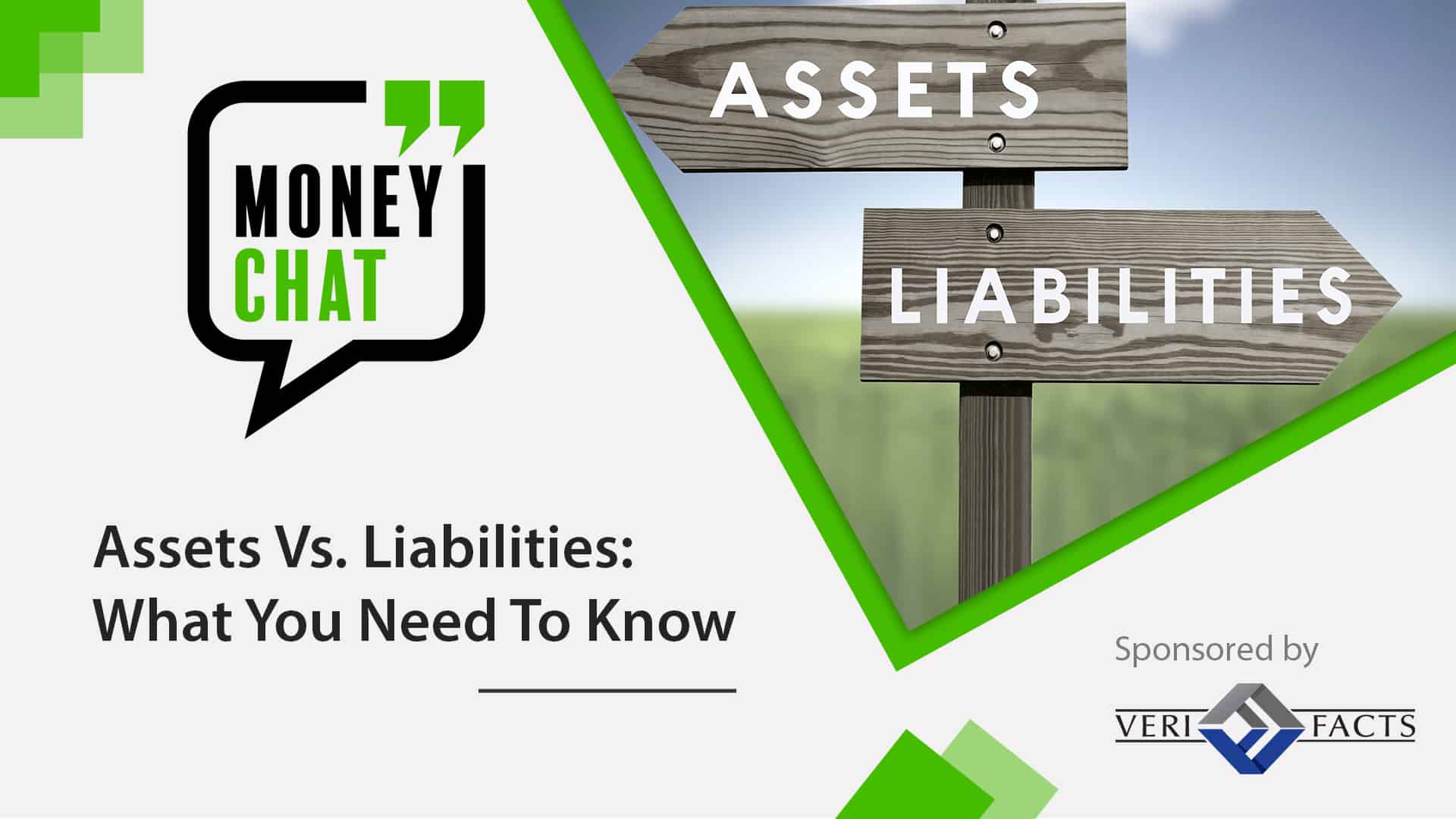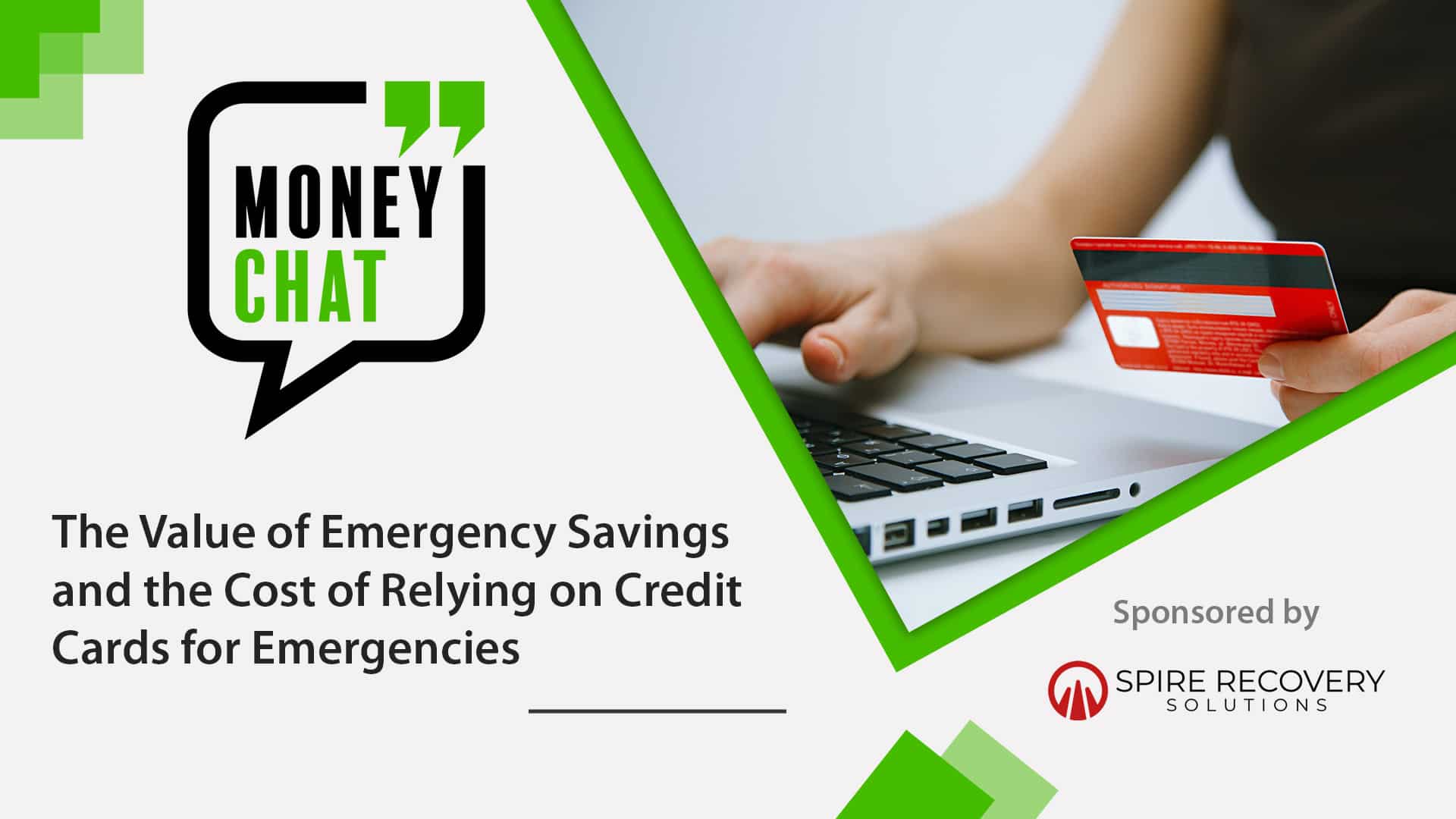
Assets Vs. Liabilities: What You Need To Know
Every new purchase or transaction, from something as simple as buying a new pair of shoes to something as major as buying a house, influences what assets and liabilities you own. Understanding the key differences between the two, and managing liabilities so they do not overwhelm your total assets, could mean the difference between having a healthy financial future and filing for bankruptcy.
In this Money Chat, we will help you understand the differences between assets and liabilities and how they influence your net worth.
What Are Assets and Liabilities?
In layman’s terms, an asset is a resource that represents future benefit. While arbitrary, assets are easily recognized as being items, or even sometimes ideas, that have tangible real-life benefits. For example, all the cash, items, cars, real estate, and investments a consumer owns would be considered assets on a balance sheet.
Liabilities, on the other hand, are all the negative things a person or corporation may be contractually responsible for. For example, a mortgage, car loan, student loan debt, and credit card balance are all considered liabilities.
Within these two categories, there are many different kinds of assets and liabilities. Assets can be classified as current, fixed, financial, or intangible. For liabilities, there are just current and non-current liabilities.
Different Types of Assets
Current assets are the easiest to understand as they are simply the short-term, cash-equivalent assets you own. The two most common types of current assets are cash and inventory. Typically, anything you expect to be converted into cash within a year is a “current” asset.
Fixed assets are items that can be turned into cash but are expected to be held over a year. Fixed assets are your home, car, or any household equipment that represents monetary value but isn’t expected to just be sold. Fixed assets come with general “depreciation” standards about how that product loses value over time. If you bought a car in 2015, you cannot expect to sell it in 2020 for the same price as when you bought it new. While most fixed assets depreciate, sometimes they appreciate or gain value over time due to inflation or market expectations.
Financial assets are simply assets tied to the stock market. Bonds, stocks, and securities are all financial assets.
Financially, intangible assets are the hardest to quantify because they represent assets with no physical presence. While financial assets can technically be quantified on the stock market, intangible assets are things like ideas, patents, copyrights, and even “good will.” The most common form of “good will” represents a consumer’s credit score as it indicates how likely a consumer is to make payments reliably and on time.
Types of Liabilities
In the land of liabilities, a current liability is anything expected to last less than a year and a non-current liability is anything thereafter. Current liabilities include credit card debt while non-current liabilities account for over 80% of all debt and include mortgages, car loans, and medical debt.
Net Worth
The big-picture impact liabilities and assets have on a consumer’s financial health can be expressed as net worth. It’s a common quantifier used to describe the wealth of the rich and famous, but at its most basic is simply a measure of how your assets compare to your liabilities. To calculate net worth, simply subtract your total liabilities from your total assets.
For example: If Joe owns a $25,000 car, a $400,000 home, has over $50,000 in savings, and has $25,000 invested in the stock market, his total assets would be equivalent to roughly $500,000. On the liabilities side, if he has $15,000 remaining on a car loan, $300,000 remaining on a mortgage, $10,000 in credit card debt, and owes a friend $3,000, his total liabilities would be roughly $328,000. Net worth in this case would be $500,000-$328,000 or $172,000.
Net worth is a useful tool to determine if you remain in good financial standing. If you add up your liabilities and assets and determine your net worth to be negative, it’s important to begin taking steps to reduce your cost of living and/or increase your net income.
Final Takeaways
As you begin studying your assets and liabilities, it’s important to remember that any major secured liabilities you have often are recuperated by repossessing assets. If you fail to pay your car loan, or fall behind on home payments, major banks will likely attempt to repossess your car or put your home in foreclosure.
Wherever you are in your financial journey, understanding what assets and liabilities are, how they impact your life, and how secure you are from a negative net worth can help you stay afloat and healthy in case of any major emergency where you need to convert your assets into cash.
Additional Resources
If you want to learn more about financial literacy or your rights as a consumer, please visit the Receivables Info Resources Page.
Have an idea for a Money Chat topic?
We want to hear from you! If you have a suggestion for a future Money Chat topic, please email us at [email protected].
The information contained in this article is meant to serve as general guidance for consumers and not meant to serve as comprehensive financial advice. For questions about your individual circumstance, finances, or accounts, please contact your creditor(s) and/or financial advisor directly.
Thank you to our Sponsor VeriFacts, LLC
VeriFacts, LLC is the top employment location and verification service for the receivables management industry. Having been in business for over 30 years, they are committed to offering guaranteed customer location and employment verification services to creditors across the nation. The VeriFacts brand has become synonymous with high-quality service and a positive customer experience. Over the years, their services have expanded into residential location information, data verification, and unique data aggregation. VeriFacts is proud to be a Certified Women-Owned Business by the WBENC.









